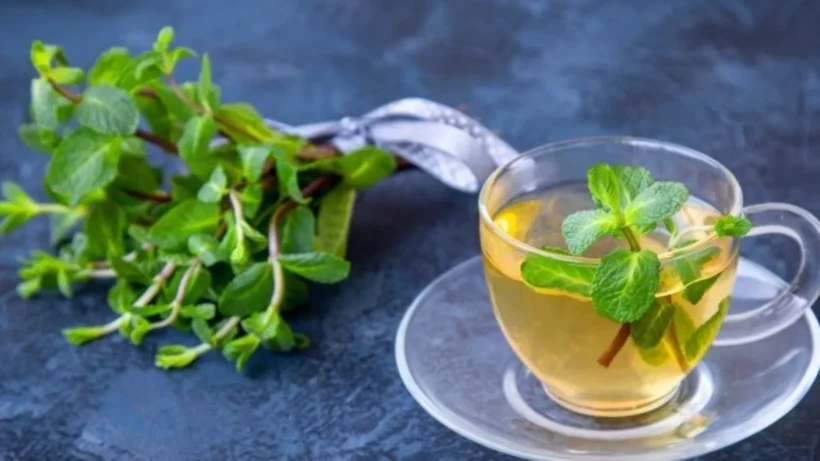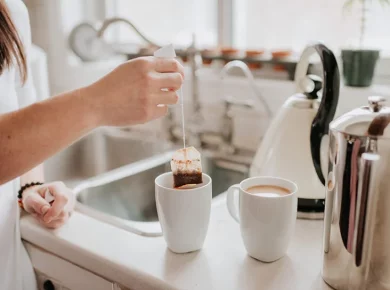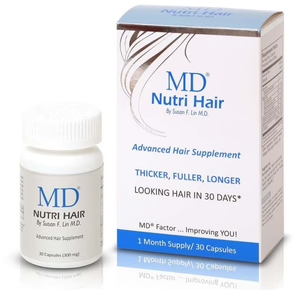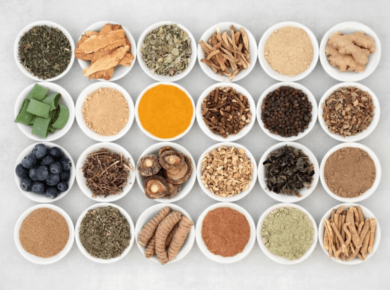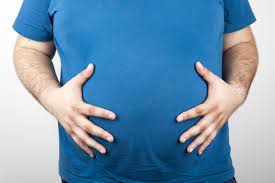Bloating and gas can be uncomfortable and frustrating, but herbal teas can provide relief. Here are 5 herbal teas you can consume to get relief from bloating and gas:
Looking to ease bloating and gas pains? Check out these 5 herbal teas that are known to help! Each tea has its own unique benefits that can help you get relief from your symptoms. Try out one of these teas today and see how it helps relieve your discomfort! Don’t forget to drink plenty of fluids while consuming these teas to ensure maximum effect.
Peppermint tea
Peppermint is known for its ability to relax the muscles in the digestive tract and relieve gas and bloating. Peppermint tea can also help with indigestion and stomach cramps.
Peppermint tea is one of the best natural remedies for bloating and gas. The tea has a soothing effect on the digestive system, which helps in relieving cramps and discomfort caused by gas. It contains menthol, which relaxes the muscles of the digestive tract, allowing gas to pass more easily.
Peppermint tea is also known for its ability to relieve nausea and indigestion. It helps in reducing inflammation in the stomach lining, making it an effective remedy for those suffering from acid reflux or heartburn. Additionally, peppermint tea has a refreshing taste that can help soothe your senses and calm your nerves.
To prepare peppermint tea at home, steep fresh or dried peppermint leaves in hot water for 5-10 minutes. You can add honey or lemon to enhance its flavor. However, if you are suffering from acid reflux or heartburn, avoid adding citrus fruits as they may aggravate your symptoms. Drink 1-2 cups of peppermint tea daily to alleviate bloating and gas symptoms naturally.
Also Read: wellhealthorganic.com:health-benefits-and-side-effects-of-oil-of-oregano
Ginger tea
Ginger has anti-inflammatory properties that can soothe the digestive tract and relieve bloating and gas. Ginger tea can also help with nausea and vomiting.
Ginger tea is another herbal remedy that can help relieve bloating and gas. Ginger has long been used for its medicinal properties, including its ability to aid digestion. It contains compounds that can stimulate the digestive system, making it more efficient at breaking down food and reducing bloating.
To make ginger tea, simply steep fresh ginger root in hot water for several minutes. You can also add lemon juice or honey to enhance the flavor. Drinking a cup of ginger tea after meals may help prevent bloating and other digestive issues.
However, it’s important to note that while ginger is generally safe for most people when consumed in moderation, some individuals may experience side effects such as heartburn or diarrhea. If you have any concerns about consuming ginger tea or any other herbal remedies, it’s best to consult with your healthcare provider first.
Chamomile tea
Chamomile has anti-inflammatory and anti-spasmodic properties that can help soothe the digestive system and relieve bloating and gas. Chamomile tea can also help with anxiety and stress, which can contribute to digestive issues.
Chamomile tea is a popular herbal remedy that has been used for centuries to treat various ailments, including bloating and gas. This tea is made from the dried flowers of the chamomile plant, which contains flavonoids that have anti-inflammatory properties that can help reduce inflammation in the digestive tract. Additionally, chamomile also acts as a mild sedative, which can help calm your nerves and promote relaxation.
Consuming chamomile tea regularly can help alleviate symptoms of bloating and gas by relaxing the muscles in your gastrointestinal tract. Chamomile tea also helps to stimulate digestion, which aids in breaking down food more effectively and reduces the likelihood of experiencing bloating or gas. Furthermore, this herbal tea has been shown to improve overall gut health by promoting healthy gut bacteria.
Overall, incorporating chamomile tea into your daily routine may provide relief from bloating and gas while promoting better overall digestive health. However, if you experience persistent or severe symptoms related to these conditions or have any concerns about incorporating chamomile into your diet, it’s important to speak with a healthcare professional before making any changes.
Also Read: wellhealthorganic.com:diet-for-excellent-skin-care-oil-is-an-essential-ingredient
Fennel tea
Fennel seeds contain compounds that can help relax the muscles in the digestive tract and reduce gas and bloating. Fennel tea can also help with indigestion and constipation.
Fennel tea is an excellent herbal remedy for bloating and gas. Fennel seed contains a compound called anethole that has antispasmodic properties which help in relaxing the muscles of the digestive tract, thereby reducing bloating and gas. The tea is also known to stimulate digestion by increasing gastric juice production in the stomach.
Fennel tea can be easily made at home by boiling water and adding fennel seeds or using pre-made fennel tea bags. It has a sweet taste with a slight licorice flavor that makes it pleasant to drink. In addition to its digestive benefits, fennel tea is also rich in antioxidants, vitamin C, potassium, and fiber.
Overall, incorporating fennel tea into your daily routine can provide relief from bloating and gas while promoting overall digestive health. However, if you have any underlying medical conditions or are pregnant or breastfeeding, it’s recommended to consult with your healthcare provider before consuming fennel tea regularly.
Dandelion tea
Dandelion has diuretic properties that can help reduce water retention and bloating. Dandelion tea can also help with liver function and digestion.
Dandelion tea is a popular herbal remedy that has been used for centuries to aid in digestion and alleviate bloating and gas. This tea is made from the roots of the dandelion plant, which are rich in vitamins and minerals. Dandelion root contains compounds that stimulate the production of digestive juices, which can help to break down food more efficiently and prevent gas buildup.
In addition to aiding digestion, dandelion tea has a number of other health benefits. It is known for its ability to support liver function, as it contains antioxidants that protect the liver from damage caused by free radicals. Dandelion tea also acts as a natural diuretic, helping to flush excess fluids from the body and reduce inflammation.
To make dandelion tea at home, simply steep one teaspoon of dried dandelion root in hot water for 5-10 minutes. You can add honey or lemon juice if desired. Drinking this tea regularly can help to promote healthy digestion and reduce uncomfortable symptoms like bloating and gas.
It’s important to note that if you have severe or persistent bloating and gas, it’s a good idea to see a healthcare provider to rule out any underlying medical conditions.
Also Read: wellhealthorganic.com:11-health-benefits-and-side-effects-of-olives-benefits-of-olives
Conclusion
In conclusion, herbal teas can be an excellent natural remedy for bloating and gas. The five different types of herbal teas mentioned in this article have been proven to provide relief from digestive issues. However, it is important to note that the effects of these teas may vary from person to person.
If you are someone who suffers from chronic digestive issues, it’s always best to consult with a medical professional before adding any supplements or herbs into your diet. Additionally, while herbal teas are generally considered safe, some people may experience adverse reactions or interactions with other medications they may be taking.
Overall, incorporating more natural remedies into our daily routines can provide numerous health benefits. Herbal teas are just one example of how we can utilize nature’s healing powers to improve our overall well-being.
FAQ
Q: Are there any side effects of consuming these herbal teas for bloating and gas relief?
A: In general, these herbal teas are safe for most people to consume. However, some people may be allergic to certain herbs or may experience mild side effects such as headaches, dizziness, or upset stomach. It’s always a good idea to start with small amounts of any new herbal tea and monitor your body’s reaction. If you have any concerns, it’s best to consult with a healthcare provider.
Q: Can pregnant women consume these herbal teas?
A: Pregnant women should be cautious when consuming herbal teas and consult with their healthcare provider before doing so. Some herbs may be harmful to the developing fetus, and it’s important to ensure that the herbal tea is safe for both the mother and the baby.
Q: Can children consume these herbal teas?
A: Children should also be cautious when consuming herbal teas and consult with their healthcare provider before doing so. Some herbs may not be appropriate for children, and it’s important to ensure that the herbal tea is safe and appropriate for their age and development.
Q: Are these herbal teas a substitute for medical treatment for bloating and gas?
A: Herbal teas can provide temporary relief from bloating and gas, but they should not be used as a substitute for medical treatment if the symptoms persist or are severe. It’s important to see a healthcare provider if you have persistent or severe bloating and gas, as they can help diagnose and treat any underlying medical conditions.

